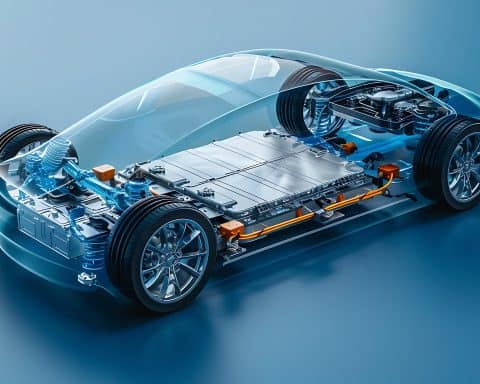A new era of electric travel could be on the horizon with a remarkable development by 24M Technologies, potentially reshaping how we think about mobility and environmental sustainability. The Boston-area company has crafted an extraordinary battery technology allowing electric vehicles to travel up to 1,000 miles on a single charge, which promises to revolutionize more than just the automotive sector.
Rethinking Mobility and Community
If adopted widely, these long-range batteries could trigger a major boost in electric vehicle (EV) adoption. Communities, especially those spanning large geographies, might witness a transformation in mobility patterns, facilitating smoother long-distance travel. As such, tourism and business sectors could thrive with reduced dependence on frequent charging stops. This shift could extend beyond personal transportation, influencing new designs in public transport systems for better connectivity.
Environmental Benefits and Health Impacts
The potential environmental upsides are vast. Increased usage of EVs thanks to these advanced batteries could slash greenhouse gas emissions, elevating air quality and diminishing pollution-induced health problems. Communities stand to gain significantly, enhancing sustainability trajectories and improving public health metrics globally.
Addressing Broader Challenges
Yet, with innovation comes a slate of challenges. The sourcing of raw materials for battery production, despite optimizations, still raises ethical and environmental questions about mining. Moreover, handling increased battery waste poses significant challenges, urging a need for robust recycling strategies and eco-friendly disposal methods.
Economic Implications
Economically, this breakthrough could disrupt the automotive industry, necessitating shifts toward new business models and skill sets. While the initial costs of adopting these new batteries may be high, competitive pricing strategies could lower overall EV costs, making them accessible to more consumers over time.
Readiness for Transformation
With these advancements, the industry faces critical questions about infrastructure readiness and consumer receptivity. Collaborative efforts among industry, government, and communities are essential to effectively integrate this technology.
As 24M Technologies advances its groundbreaking work, the world watches on, eager for a future where electric travel marries practicality with eco-consciousness. The journey towards an electrified future, once a distant dream, now teeters on the brink of reality.
How Revolutionary Battery Innovations Are Accelerating the EV Revolution
As the demand for sustainable travel solutions intensifies, breakthroughs in electric vehicle (EV) battery technology are paving the way for unprecedented advances in both mobility and environmental stewardship. The groundbreaking development by 24M Technologies, with batteries enabling up to 1,000 miles on a single charge, has set the stage for transformative shifts across multiple sectors. Here we delve into the novel aspects and potential impacts of this technological leap.
Innovations Driving Battery Performance
The core of 24M Technologies’ innovation lies in its unique semi-solid lithium-ion battery design. This advancement not only extends the driving range but also enhances the efficiency and safety of the vehicles utilizing it. These batteries utilize less liquid electrolyte compared to traditional models, reducing the chances of leakage and flammability, thereby improving overall safety.
Implications for Market Adaptation
This technological leap could redefine market dynamics within the automotive sector. Car manufacturers may find strategic alliances with battery innovators crucial to remain competitive, fostering a surge in joint ventures and partnerships. The supply chain could witness increased localization as companies seek to mitigate geopolitical risks associated with raw material sourcing.
Trends in Consumer Preferences
As range anxiety decreases due to enhanced battery capacities, consumer confidence in fully transitioning to EVs is likely to rise. Long-distance commuters and rural population segments, previously hesitant due to charging infrastructure challenges, may now consider EVs as viable alternatives to traditional vehicles.
Pros and Cons of Expanded Range Batteries
– Pros:
– Significant reduction in travel time and stops.
– Broader adoption in commercial sectors like logistics and public transportation.
– Potential for dramatic declines in carbon footprints.
– Cons:
– High initial production costs and substantial research investments.
– Continued ethical concerns over mining for essential battery components.
– Pressure on recycling facilities as battery production increases.
Future Prospects and Sustainability Considerations
As the industry steers toward these advanced battery technologies, there is a growing impetus for concomitant developments in recycling frameworks and sustainable sourcing practices. Advances in solid-state battery technology are becoming increasingly crucial to address these concerns, offering a potential path toward fully sustainable electric mobility solutions.
Predictions for Infrastructure Development
A robust infrastructure overhaul will be essential to accommodate the anticipated surge in EV adoption. Investments in widespread charging networks, renewable energy integration, and adaptive grid systems will play a vital role in sustaining this technological shift. Key industry players and government bodies will need to collaborate to ensure seamless integration and consumer accessibility.
For more information on cutting-edge battery technologies and their impact on the automotive industry, visit 24M Technologies.
In summary, the innovations spearheaded by 24M Technologies are more than a stride in battery development; they are catalyst, propelling the world toward a future where electric travel is not only a viable option but a mainstream norm. As these developments continue to unfold, the potential to redefine mobility and environmental harmony remains a promising horizon.













